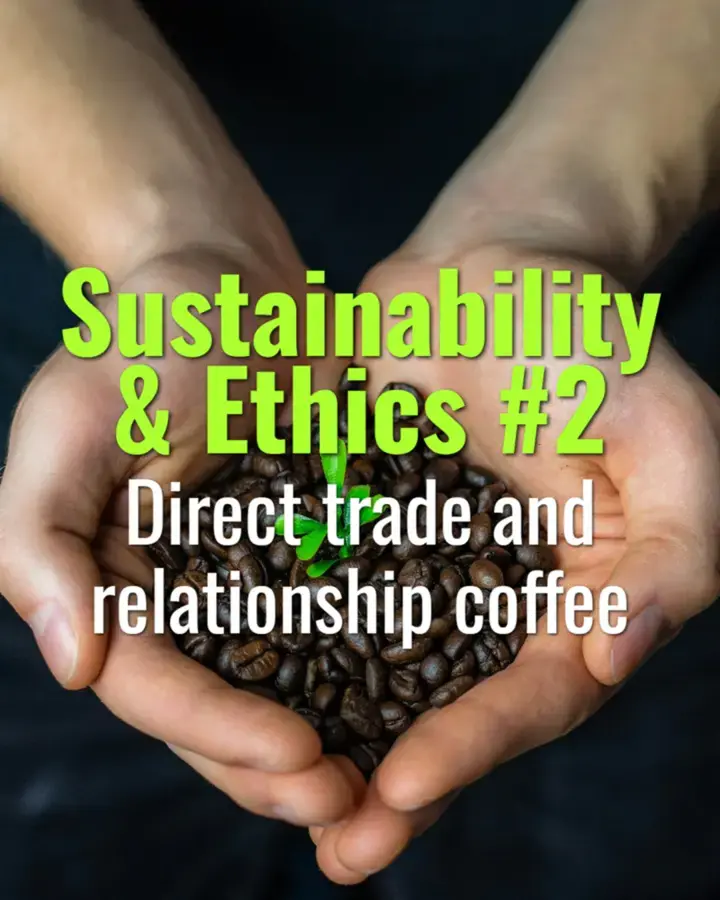Direct trade and relationship coffee
The concept of direct trade and relationship coffee, how it differs from certifications, and its role in building sustainable supply chains.
- Coffee Basics Nerds
- 2 min read
Article 2 of 12 in Sustainability & Ethics/

What is Direct Trade?
- A sourcing model where roasters buy coffee directly from producers, bypassing traditional intermediaries.
- Emphasizes transparency, quality, and traceability rather than standardized certifications.
Core Principles
- Personal Relationships: Roasters build long-term connections with farmers.
- Transparency: Open communication about pricing, costs, and quality standards.
- Quality Focus: Coffees often scored and paid for above commodity prices.
- Flexibility: Agreements tailored to farm and roaster needs rather than global certification standards.
Relationship Coffee
- Sometimes used interchangeably with direct trade but stresses the depth of partnership.
- Includes:
- Repeat purchases year after year.
- Collaboration on processing experiments, farm investments, or infrastructure.
- Shared risk in crop failures or climate challenges.
Advantages
- For Farmers: Higher premiums, stable demand, technical feedback from roasters.
- For Roasters: Consistent quality, marketing story, unique offerings.
- For Consumers: Greater transparency and sense of connection to origin.
Challenges
- No Universal Standard: Unlike Fairtrade or Organic, “direct trade” is self-defined.
- Verification: Consumers must trust roaster’s claims.
- Scale Limits: Works best with small-to-medium roasters, less practical for large commodity volumes.
Comparison with Certifications
- Certifications: Standardized, audited, accessible to broad market.
- Direct trade: Flexible, personalized, but relies on trust and reputation.
- Many roasters combine both: direct trade relationships plus certified lots.
Summary
Direct trade and relationship coffee emphasize long-term, transparent, and collaborative sourcing partnerships. While lacking formal regulation, they can deliver higher farmer income, better quality, and deeper consumer trust—when practiced with integrity.